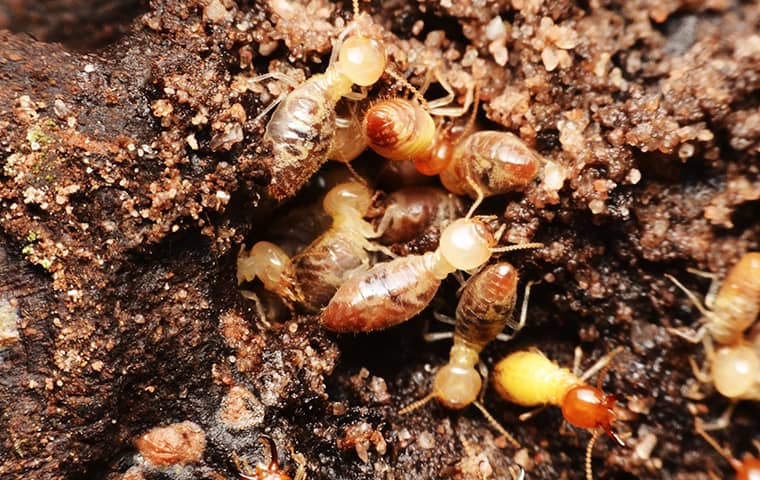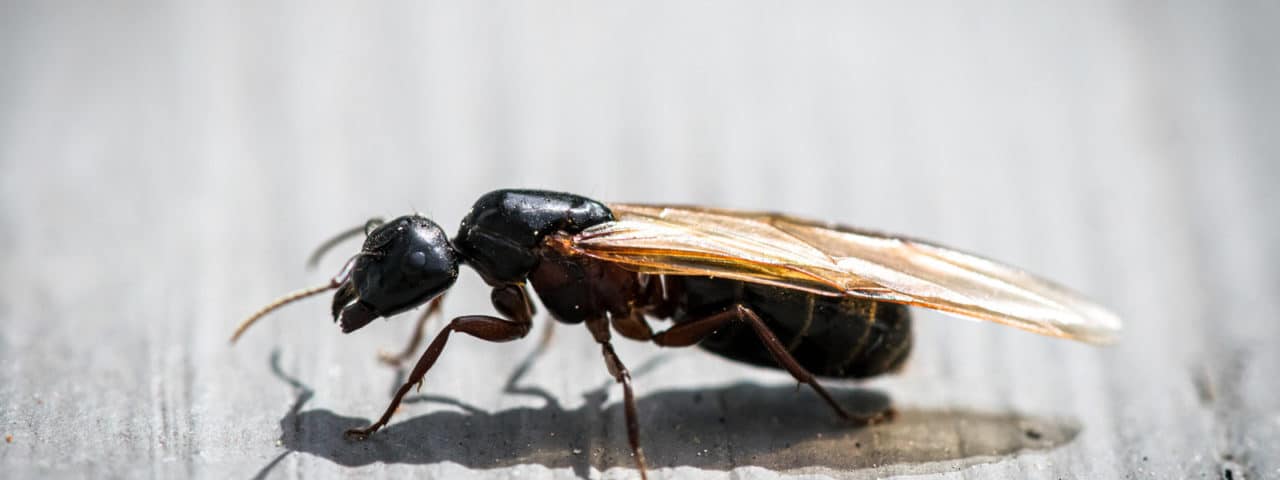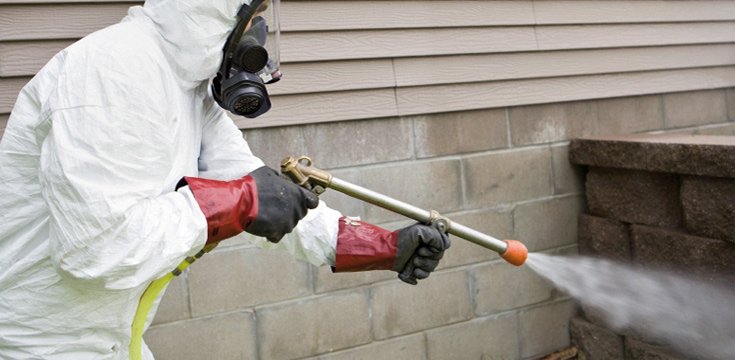Ecological Impact of Parasite Control: Balancing Effectiveness With Sustainability
The environmental effect of parasite control is a crucial issue that calls for a delicate balance in between achieving performance in ensuring and taking care of insects sustainability of our communities. As we make every effort to shield our plants, homes, and health from the dangers positioned by parasites, the methods we employ can inadvertently damage the environment. From using dangerous chemicals that leak right into our soil and water to the unexpected consequences on non-target types, the repercussions of standard insect control methods are far-ranging. Nevertheless, there are arising approaches that provide wish for a more sustainable technique to pest administration. These solutions not only purpose to address the immediate parasite problems but likewise consider the long-lasting health of our world.
Dangerous Chemicals in Parasite Control
The application of unsafe chemicals in parasite control postures substantial ecological and wellness threats that necessitate mindful factor to consider and reduction techniques. Pesticides, herbicides, and pesticides are generally made use of to eliminate insects, but their prevalent application can cause unintended effects. These chemicals can infect soil, water resources, and the air, impacting not just the targeted parasites but additionally beneficial insects, wildlife, and people.

To resolve these dangers, integrated insect management (IPM) techniques are being advertised as a more lasting option. IPM includes a combination of approaches such as biological control, habitat adjustment, and the targeted use of chemicals as a last hotel (ant control salisbury nc). By adopting a holistic strategy to pest control, we can lessen the environmental and health effects associated with harmful chemicals while efficiently managing pest populaces
Effect On Non-Target Variety
Thinking about the unintentional repercussions of bug control methods, the influence on non-target varieties is a critical element that requires thorough evaluation. While pest control measures aim to target certain bugs, various other organisms in the ecosystem might be accidentally influenced. Non-target species, consisting of valuable bugs, birds, creatures, and even plants, can suffer direct or indirect harm from pesticide applications or organic control approaches.
Insecticides designed to battle a specific bug bug might damage pollinators like or all-natural predators such as ladybugs. Biological control representatives, if not species-specific, can present dangers to unexpected targets, interfering with the ecological equilibrium.
To reduce the impact on non-target types, integrated bug management (IPM) methods that emphasize a holistic technique to pest control are advised. These techniques focus on using ecologically friendly methods, reducing injury to helpful microorganisms while successfully handling pest populations. Conducting comprehensive danger analyses and keeping track of the results of insect control efforts are necessary actions in protecting non-target varieties and advertising general ecological community health.
Soil and Water Contamination
Unplanned ecological effects of bug control approaches prolong past influencing non-target species, with significant implications for soil and water contamination. Chemicals, herbicides, and chemical fertilizers used in bug control can seep right into the soil and infect groundwater, positioning a danger to both water and terrestrial ecological communities. Soil contamination can interfere with the balance of microbes essential for nutrient cycling and plant development, causing lowered soil fertility and productivity. Moreover, these chemicals can persist in the environment for extended durations, gathering in the dirt and potentially entering the food web.
Water contamination is another vital problem linked with parasite control methods. Overflow from agricultural areas treated with chemicals can lug these chemicals into nearby water bodies, impacting water microorganisms and water quality. Pollutants in water resources can have far-ranging consequences, impacting not just aquatic life however also human wellness through the usage of infected water or aquatic microorganisms. To alleviate soil and water contamination from pest control tasks, integrated insect monitoring approaches that prioritize sustainability and decrease chemical inputs are essential.
Air Air Pollution From Chemical Use
Direct exposure to air-borne chemicals during agricultural applications presents a considerable problem for air contamination control measures. When chemicals are splashed onto crops, they can volatilize into the air and kind volatile organic compounds (VOCs) and other airborne pollutants. These chemicals can add to the formation of ground-level ozone, a significant element of smog that can have destructive results on human health and wellness, crop performance, and overall air quality. Additionally, pesticide drift, where chemicals are lugged by the wind to unplanned areas, can bring about the contamination of neighboring environments and water bodies.

Techniques for Sustainable Bug Control
In the world of farming methods, applying lasting parasite control strategies is critical for keeping environmental equilibrium and safeguarding crop yields. Sustainable insect control highlights using eco-friendly techniques to handle parasite populaces effectively while minimizing harm to non-target organisms and communities. Integrated Insect Management (IPM) is a widely adopted strategy that combines biological, social, physical, and chemical control techniques to attain lasting parasite administration options.
Plant rotation and diversification are also efficient techniques to interrupt pest life cycles and produce less desirable conditions for parasites to flourish. Inevitably, by integrating these sustainable insect control techniques, farmers can achieve an equilibrium between pest monitoring effectiveness and click for more info environmental stewardship.
Final Thought
In conclusion, the environmental influence of pest control techniques have to be meticulously thought about to stabilize effectiveness with sustainability. Damaging chemicals made use of in parasite control can result in soil and water contamination, air contamination, and harm non-target types - termite control services. It is essential to carry out lasting parasite control strategies to lessen these adverse effects on the environment and promote a healthier environment for future generations
By embracing an all natural approach to pest control, we can lessen the ecological and wellness impacts connected with dangerous chemicals while properly taking care of pest populaces.

To minimize the air pollution created by pesticide usage, it is essential to embrace incorporated pest administration approaches that prioritize the usage of non-chemical parasite control methods, such as plant turning, natural predators, and resistant plant ranges. Sustainable insect control highlights the usage of environmentally friendly techniques to take care of pest populations properly while reducing damage to non-target microorganisms and communities. Integrated Bug Monitoring (IPM) is a widely embraced technique that incorporates biological, cultural, physical, and chemical control techniques to attain lasting pest management services.